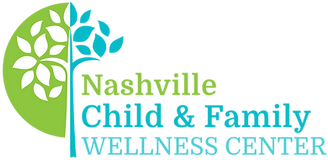The Art of Social Skills and Why They Matter

by Casey Berkowitz, LMSW & Bette Roberts, LMSW
Think back to a time when you were feeling anxious or nervous about meeting someone new. What did that feel like? Some might say – it did not feel so good. People of all ages and all backgrounds can find social interactions to be challenging, especially children and adolescents.
Children and adolescents are continuously developing their social skills, with some experiencing more difficulty navigating interactions with their peers. Some specific populations may have a harder time with social skills including individuals with autism spectrum disorder (ASD), attention-deficit/hyperactivity disorder (ADHD), anxiety, intellectual and developmental disabilities, and trauma survivors. However, social skills are important for children and teens so they can solidify relationships, build self-esteem, and navigate their social world with confidence.
For a child struggling with social skills, it can be incredibly isolating. They may feel like they cannot talk to anyone, and no one understands them. The impact of struggling with social skills includes difficulty building and maintaining relationships; common misunderstandings and miscommunications; limited career opportunities later in life; a negative impact on mental health; increased risk of bullying or victimization; limitations in independence, and more.
It’s critical to have parents on board when helping kids and teens learn social skills. Parents can use validation and empathy to help their children feel seen and heard as they work on new skills. Parents can be their child’s biggest cheerleader!
Social skills can be learned and can improve over time! It involves a mix of practice, self-awareness, and targeted interventions. Several evidence-based programs exist to support your child with the acquisition of effective social skills. Programs are usually delivered in an educational format to both children and parents. However, groups also function as a collaborative and therapeutic environment for children and parents alike. Children and teens learn from and amongst others who experience similar social struggles. Parents are given the opportunity to empathize with one another’s experiences and gain ideas and strategies from other families that have found success.
PEERS (The Program for the Education and Enrichment of Relational Skills) is an example of an evidence-based social skills training intervention. It specifically supports individuals and families of teens diagnosed with autism spectrum disorder (ASD), attention deficit hyperactivity disorder (ADHD), and others who may be struggling to navigate their social worlds. Through this program, teens and parents gather weekly to build skills and knowledge around making and keeping friends and navigating conflict and rejection.
At Nashville Child and Family Wellness Center, teens and families are separated into a teen intervention group and a parent intervention group. Teens engage in the weekly didactic lesson and roleplays, while parents learn how to support the development of these skills at home and act as “social coaches”. During the modules, teens and families learn about developing and maintaining friendships; conversational skills; entering and exiting conversation; appropriate electronic communication; appropriate humor; having get-togethers; sportsmanship; navigating disagreements; changing a bad reputation; and handling teasing and bullying. Outside of the group, teens and families are instructed to practice their newfound skills through phone calls with one another. Teens also practice making out-of-group phone calls to build confidence around using their new skills.
To help your teen gain support around social skills, you can find more information at https://nashvillefamilywellness.com/services/group-therapy/. Taking brave steps to learn social skills and implement them can be life changing and incredibly empowering for both you and your child!




